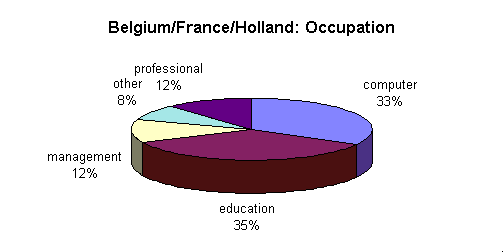 |
Compared with GVU's 4th Survey, this region has seen a sharp
drop in
educational users, down to 35 percent from 44 percent 6 months ago.
|
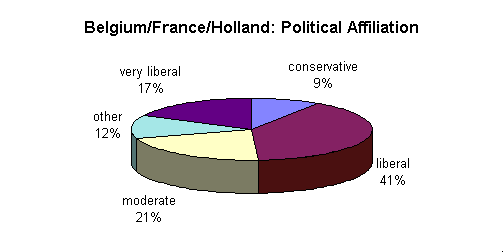 |
While not exactly synonymous, the terms "liberal" and
"conservative"
have similar connotations in most areas of Europe. It is possible, given the educational level of most Web users, that many respondents answered the question understanding the Americ
an definitions of the terms. The survey question did not give any such
definitions, however. Overall, 18.1 percent of Europeans answered this
question either "other" (7.24%) "not_say" (4.88%) or don't_know"
(5.98%). |
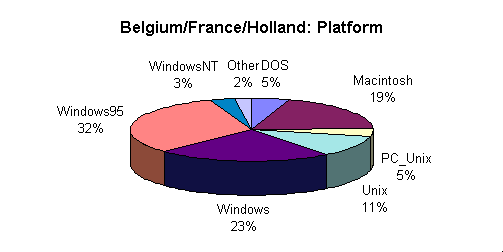 |
An unusually large percentage of Web users in this region use
Unix as
their main computing platform, 16 percent compared to 12 percent in Europe
overall and only 4.4 percent in the U.S.. |
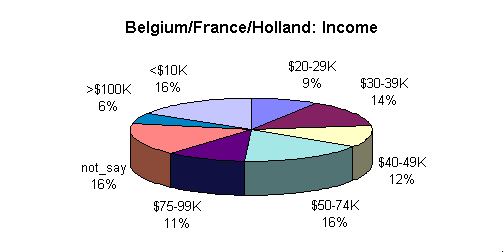 |
Overall Europe has more users in the lower income brackets,
with 31.6
percent making more than $50,000. In this region, 33 percent of Web users
make more than $50,000 and 51 percent make less than
50,000. |
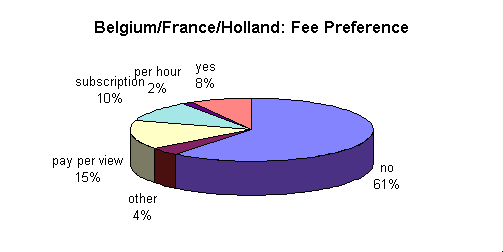 |
This question was changed for the 5th GVU Survey, so it is
difficult
to compare the results. In general, Europeans are less resistant to paying for Web page access than Americans, perhaps because Europeans often access the Web via business or educati
onal institutions. This eliminates the double payment which occurs with
people who pay for their home access to the Internet. |









